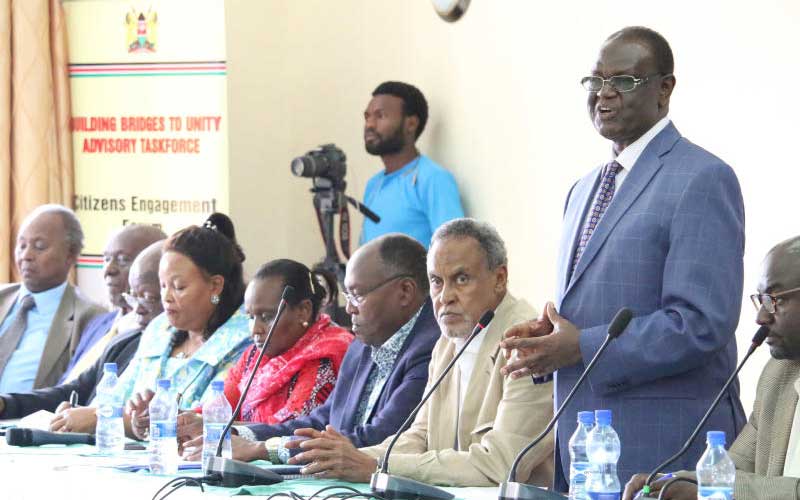×
The Standard e-Paper
Kenya’s Boldest Voice

President Uhuru Kenyatta and former Prime Minister Raila Odinga’s tight grip over the Building Bridges Initiative (BBI) ace card has sent the initiative adversaries sprawling in political confusion.
In the wake of their covert moves, Deputy President William Ruto and his allies have been forced to adopt contrasting positions with regard to the referendum question, as they buy more time for clarity in the coming days.